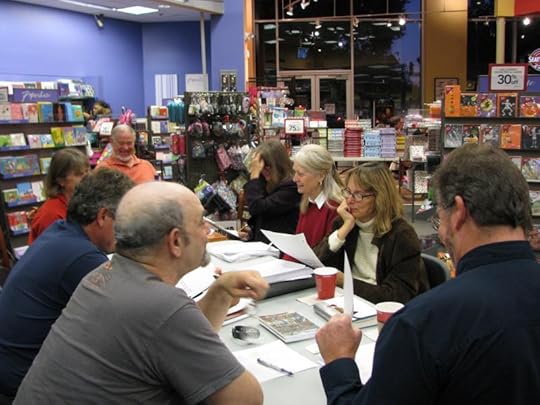Making the Most of Critiques, Part I
 One of the most important parts of the writing process is collecting audience feedback. We all need objective eyes to evaluate our work and help us improve. However, not all criticism is created equal. The first step in getting useful feedback is to solicit it correctly.
One of the most important parts of the writing process is collecting audience feedback. We all need objective eyes to evaluate our work and help us improve. However, not all criticism is created equal. The first step in getting useful feedback is to solicit it correctly. In this case, I'm a big fan of collecting a large sample. Art and entertainment are very subjective areas, and one person's favourite novel may be something their best friend finds gag-inducing. Furthermore, some people just have unusual tastes or perspectives, and probably won't give you an idea of what the 'average reader' thinks.
Ideally, you want to find fans of your genre. First, they can spot worn-out genre tropes right away. Second, it eliminates unhelpful feedback from people who dislike a genre on sight-- for example, Michael and I Third, these people most likely represent a sample of your real audience.
Finally, it's a good idea to flag up potentially controversial or triggering material in your book before you ask people to trade critiques. And while I'm a big fan of speaking up for one's beliefs, this is not the time and place to make a fuss about the person who doesn't want to read your story because they disagree with you. (For example, someone declined to read Forgotten Gods because of 'gay content'). Pressing the issue just leads to a lose-lose situation.
If you're intimidated by the idea of finding people to critique your work, try a site such as Authonomy, which encourages authors to review each other's works in progress. It can be a bit awkward at first, but getting a large amount of reader feedback at various writing stages is incredibly worthwhile.
Published on March 18, 2013 03:16
No comments have been added yet.



